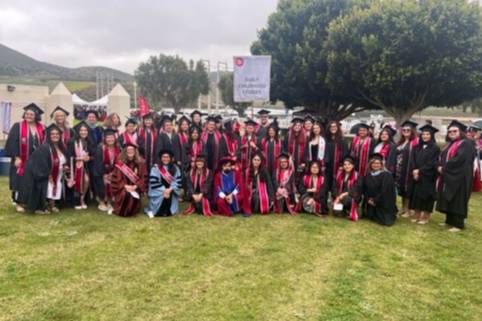Our program
The MA in ECS program cultivates early childhood leaders who transform learning environments through play-based pedagogy, cultural sustaining, and inclusive practices. Students master critical skills in fostering meaningful teacher-child-family partnerships and supporting multilingual development, preparing them to create and lead exemplary early learning programs.
Our comprehensive curriculum explores:
- Advanced child development theories and research
- Inclusion and disability rights
- Play
- Advocacy for dual language learners
- Early literacies
- Nurturing and responsive relationships
- Inclusion and early childhood special needs
- Contemporary issues in early childhood education
- Observation and assessment
- Action research in early childhood
Distinguishing Features:
- 100% online coursework with asynchronous learning
- No GRE required
- Roadmap to complete in 1.5 years (or 3 semesters S/F/Sp)
- Cohort model to better assist students for degree completion
- Course semester schedule designed for professionals
- Advising and mentoring by early childhood faculty
- Opportunity for service-learning
- Meets 24-hour early childhood coursework requirement for those interested in the PK-3 Credential
Graduates emerge prepared for roles such as:
- Early Childhood Program Director
- Education Policy Advocate
- Professional Development Specialist
- Curriculum Specialist
- Early Intervention Coordinator
Program Learning Outcomes
- Examine equitable, culturally sustaining pedagogical and assessment practices such as learning stories.
- Promote effective practices that support the social and emotional health and well-being of children including the equitable treatment of children and families through training on antiracist and anti-bias pedagogy.
- Construct and apply knowledge of responsive teacher-child-environment interactions based on funds of knowledge focusing on multilingual learners and young children with special needs.
- Analyze equitable outdoor learning environments including children’s opportunities for connecting with the natural world.
- Generate, transform, and use early literacy, advocacy, leadership, and service-learning skills to make effective changes in early childhood settings.

